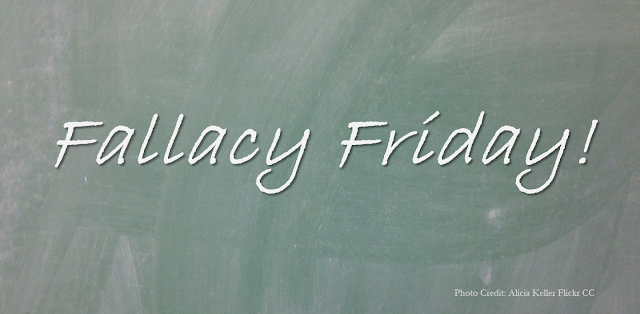(Politician's syllogism)
A very dangerous contemporary fallacy, this one arises when tragedies and crises triggers the response: “We have to do something!” – regardless of whether or not that “something” is an overreaction, ineffective, or even makes things works. The logic, or lack thereof, usually flows like this:
1. We must do something.
2. This is something.
3. Therefore, we must do this.
Humans are empathetic, and when a tragedy strikes, our emotional response pushes us to do anything we can do prevent it from happening again. However, just because we can do something doesn’t mean we should, and just because the situation seems to warrant an immediate response doesn’t mean it actually needs one. Sometimes the situation does call for action, but action should be carefully considered before it is undertaken. Doing something because it is “better than nothing” will often result in unintended consequences that often do more harm than good.
Examples:
“Banning air passengers from carrying nail clippers probably does nothing to deter potential hijackers, but we have to do something to respond to this crisis!”
School shootings prove that we have to take all guns off the street. (U.S. Representative Carolyn McCarthy, December 2012 in response to Newtown, Connecticut massacre actually said, “We have to do something" in promoting gun control measures.)
When Soviet spies were infiltrating our intelligence, many said “we have to do something”—resulting in the 1950s Red Scare that persecuted thought and banned literature. (pressandjournal.com/public-blogs/item/78-logical-fallacy-of-the-day-we-have-to-do-something)
110,000 individuals with Japanese heritage and living on the Pacific coast were placed in concentration camps during World War II in order to “do something” after the bombing of Pearl Harbor.
New York City’s “Stop and Frisk” policy to “do something” to prevent crime disproportionately targets blacks and Hispanics.
Random security checks for air travel that “randomly” selects Islamic and Arabic travelers in order to “do something” to prevent attacks similar to 9/11.
After the Penn State sex abuse scandal involving Jerry Sandusky in 2011-2012, many people advocated cancelling seasons of Penn State football in order to “do something” even though it would hurt those who had no involvement in the scandal.


No comments:
Post a Comment